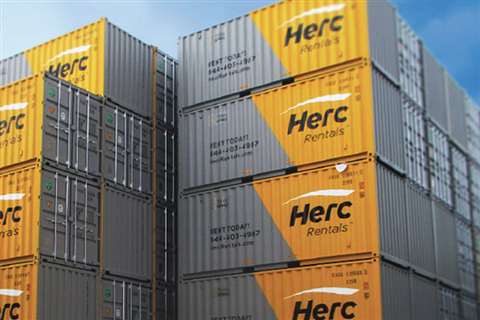Herc Rentals maintains control
23 July 2020
Despite the impact of the Covid-19 crisis on Herc Rentals’ revenues in the second quarter of 2020 - which were down almost 22% year-on-year - the company remained profitable due to its cost control measures.
In the second quarter, equipment rental revenues were $327.6 million. Although this figure represents a 19.6% drop compared to the equivalent period in 2019, the company reported monthly improvements from April to June.

The drop in rental revenues was caused by lower volumes, as a result of the pandemic, while pricing remained flat, falling by just 0.3% in the quarter compared with the same period in the previous year.
Total revenues were $368 million, down on the $475.1 million reported in the second quarter of last year.
The $107.1 million decline was primarily due to an $80 million drop in rental revenues, a $19.9 million reduction in sales of rental equipment, and a $6.2 million fall in new equipment, parts and supplies sales.
Despite these falls, adjusted EBITDA (earnings before interest, taxes, depreciation and amortisation) came to $149.4 million – though this was down 14.6% on the previous year – and the adjusted EBITDA margin improved 380 basis points to 40.6%.
Herc’s CEO Larry Silber said, “We maintained rates and did an excellent job of controlling costs in a challenging quarter.
“We took actions in 2019 to focus on disciplined capital expenditures and margin improvements, and with these programmes in place, we were in a good position when the Covid-19 pandemic hit to intensify our cost control initiatives in line with business conditions.”
He added that the company’s highest priority remains the safety of its employees and customers; “We have continued to maintain strict adherence to the Centres for Disease Control and Prevention’s guidelines in our operations and interactions with customers.”
Silber also said the overall impact of the pandemic had been partially offset by Herc’s strategy to diversity its customer base and fleet through specialty services; “We are very pleased with the performance of our ProSolutions team in particular, as they continued to generate strong year-over-year growth during this healthcare crisis.”
Gross fleet capital expenditure in the first half of the year was $161.5 million, compared to $257.1 million in the first half of the previous year.
Proceeds from disposals were $67.9 million, versus $123.7 million in the first half of 2019.
Silber said, “Construction and business activity began to improve in early June and continues to trend slowly upward.”
Looking ahead to the full year, Herc has emphasised that business conditions remain uncertain, despite the improvement since the trough in April.
The company estimates the volume of fleet on rent in the second half of 2020 is likely to decline by approximately 8 to 13% year-on-year. As a result, the company has forecast that equipment rental revenue in the second half will be down by about 10 to 15% year-over-year.
Based on this, Herc expects adjusted EBITDA for the full year to be between $625 and $650 million, and net fleet capex to be in the range of $190 to $210 million.
Silber said, “Our Herc Rentals team continues to demonstrate their professionalism and resiliency as we serve our customers every day. We are ready to support our customers in whatever capacity they need, with the understanding that we must prove ourselves every day.”
Herc Rentals ranked 6th in this year’s IRN100 listing of the world’s largest rental companies, with 2019 revenues of $1.8 billion.
